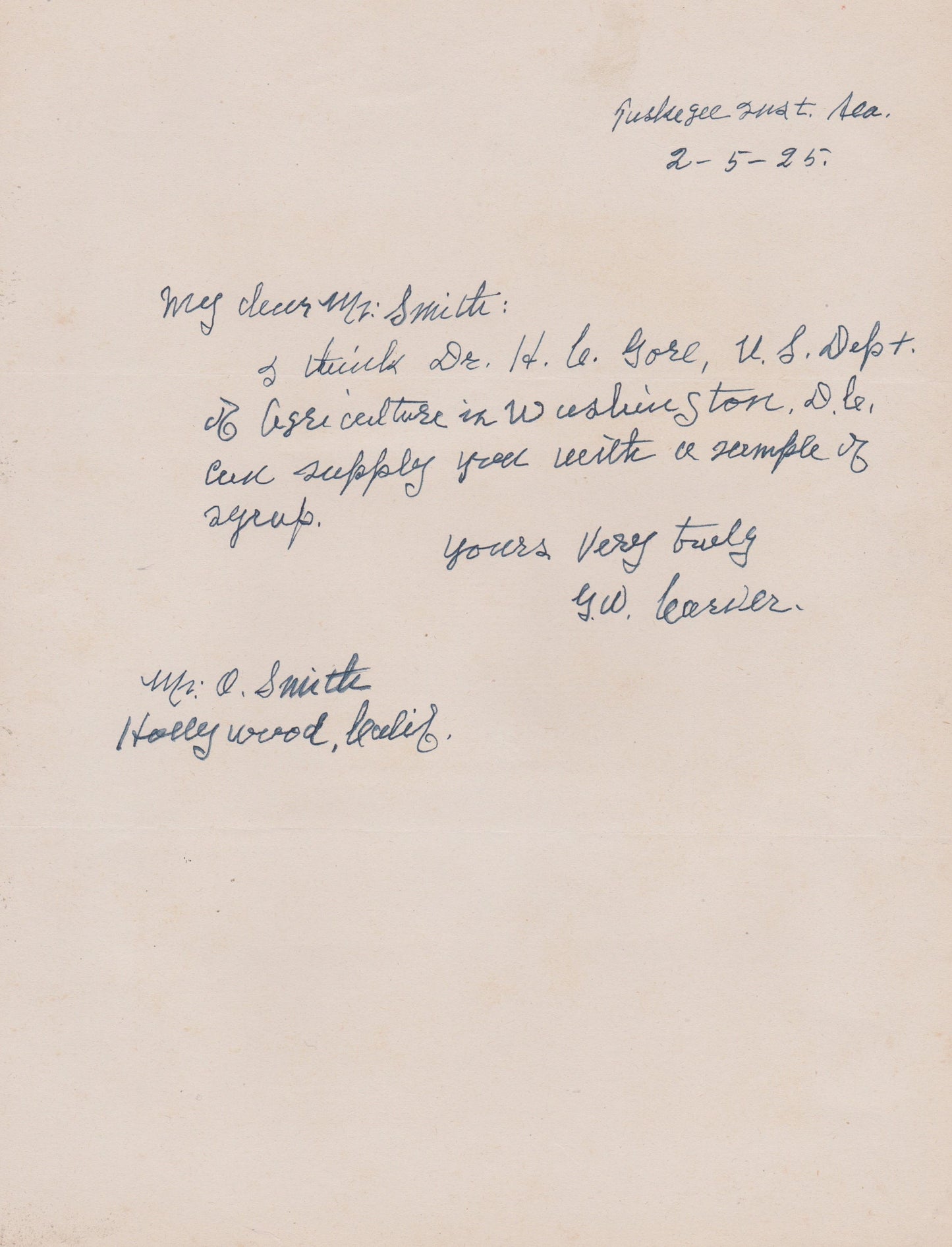Specs Fine Books
1925 GEORGE WASHINGTON CARVER. Fine Autograph Letter by Slave who Became Important American Scientist
1925 GEORGE WASHINGTON CARVER. Fine Autograph Letter by Slave who Became Important American Scientist
Couldn't load pickup availability
A fine one page framing example of a letter dating from his time as head of the Agricultural Department at Tuskegee.
The letter pertains to a syrup under research by H. G. Gore of the Department of Agriculture in Washington, D. C. It is unclear if it is a sample of Carver's cough syrup, or one of his others, such as a pumpkin and a peanut syrup he developed.
Very crisp and clean; sterling example to house with a photo in frame.
George Washington Carver (c. 1864–1943) was an African American scientist and educator. Born into slavery, he and went on to become one of the most prominent scientists and inventors of his time, as well as a teacher at the Tuskegee Institute. Carver devised over 100 products using one major crop — the peanut — including dyes, plastics and gasoline.
Carver was most likely born in 1864 into slavery in Diamond, Missouri, during the Civil War years. Like many children of slaves, the exact year and date of his birth are unknown. A week after his birth, Carver was kidnapped along with his sister and mother from the Carver farm by raiders from the neighboring state of Arkansas. The three were later sold in Kentucky. Among them, only the infant Carver was located by an agent of Moses Carver and returned to Missouri.
After the Civil War, he was obsessed with obtaining all the knowledge he could. As a young man, he left the Carver home to travel to a school for black children 10 miles away. Accepted to Highland College in Highland, Kansas, Carver was denied admittance once college administrators learned of his race. Instead of attending classes, he homesteaded a claim, where he conducted biological experiments and compiled a geological collection.
Carver moved to Ames and began his botanical studies the following year as the first black student at Iowa State. Carver excelled in his studies. Upon completion of his Bachelor of Science degree, Carver's professors Joseph Budd and Louis Pammel persuaded him to stay on for a master's degree. After graduating from Iowa State, Carver embarked on a career of teaching and research. Booker T. Washington, the founder of the historically black Tuskegee Institute, hired Carver to run the school's agricultural department in 1896.
Carver went on to become a prominent scientific expert and one of the most famous African Americans of his time. Carver achieved international fame in political and professional circles. President Theodore Roosevelt admired his work and sought his advice on agricultural matters in the United States.
Share


